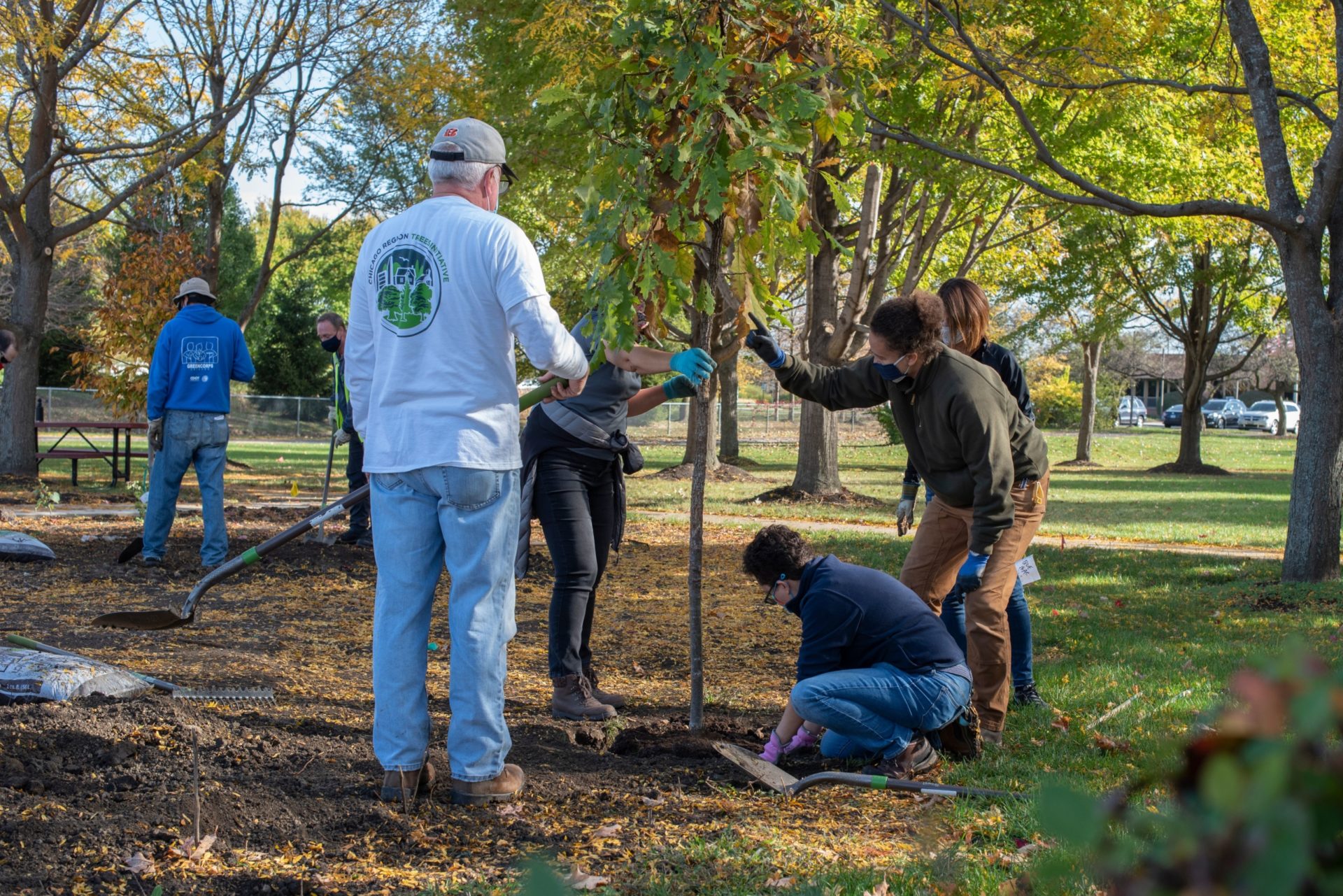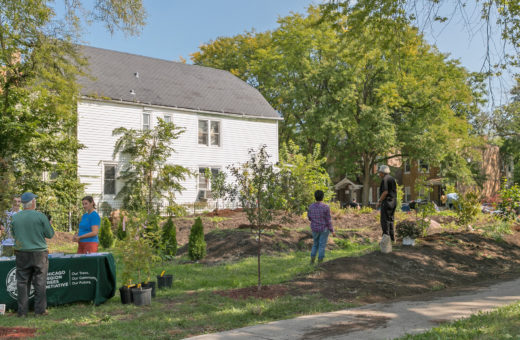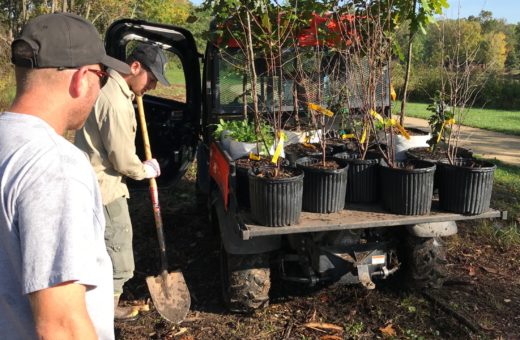Press release
Chicago Region Trees Initiative working to generate funding for trees.
LISLE, Ill. (April 6, 2022) — The Chicago Region Trees Initiative (CRTI) — founded and led by The Morton Arboretum — is launching the Chicago Region Carbon Program to generate new funding to plant and protect more trees for cleaner air and to provide many other benefits to local communities.
The announcement follows the completion of a national carbon credit sale that included two large-scale, multi-year urban forest restoration projects in Illinois’ Lake and Kendall counties.
According to City Forest Credits, a non-profit organization which verifies and issues the credits, one carbon credit offsets the equivalent of one metric ton of carbon dioxide. Corporations and other entities that want to offset their carbon footprint can purchase carbon credits that support the planting and preservation of trees in urban areas.
“This program will offer a revenue stream for Chicago area municipalities, forest preserves and other larger scale tree and forest owners that can be used to improve the health of the region’s trees – directly benefiting its residents,” said CRTI Director Lydia Scott. “The Kendall and Lake county projects helped pilot the concept of carbon credit sales for this region,” she noted, adding that CRTI will be helping connect funders with tree planting and preservation projects in the Chicago region.
The Chicago Region Carbon Program (CRCP), developed with funding from the Walder Foundation and the Gaylord and Dorothy Donnelley Foundation, will allow urban forest landowners to enroll planting and preservation projects for potential matching with corporations or other entities seeking carbon offset opportunities. Credits are determined and assigned to each project based on the species of trees, where they are planted and the projected potential of those trees to store carbon. The assigned credits are verified by City Forest Credits experts, and certificates for those credits are issued to landowners — such as municipalities, forest preserves and natural areas — who can then sell them to fund urban tree planting and management.
About the Chicago region projects
Kendall County Forest Preserve District planted 31,000 trees in winter and spring 2020 as part of its 99-acre cropland conversion project at Fox River Bluffs Forest Preserve in Yorkville, Ill. The district acquired the 166-acre preserve in 2015 with a goal to restore the former farmland to prairie and a reforested natural area. After five years of analysis and preparation, the district and community volunteers planted native trees and shrubs, including six oak species, shagbark hickory and black walnut.
Lake County Forest Preserve District planted 2,940 trees representing 24 species at 16 preserves from 2019 through 2021. The project seeks to restore natural forest types to historically altered or degraded lands, reduce habitat fragmentation, restore forest connectivity, enhance wildlife habitat and improve the aesthetic quality of the preserves.
Together the two projects will generate more than $300,000 that can go back into planting and preservation projects. “Carbon credits are a great way to help organizations generate revenue from these plantings — truly a win-win scenario,” said Matthew Ueltzen, manager of Restoration Ecology of the Lake County Forest Preserves. “We are thankful for CRTI’s support, and would encourage other communities and organizations to participate in the program,” he added.
Both forest preserve districts are among more than 200 CRTI partners whose shared mission is to improve the health, diversity and equitable distribution of the Chicago regional forest. “CRTI is ideally positioned to administer a carbon program due to its established engagement with tree-focused organizations throughout the region,” Scott said, adding, “Corporations that participate in this program will be making a significant impact on our ability to expand the urban forest and will be providing numerous benefits to communities far beyond carbon capture and sequestration.”
Owners of urban forests in the Chicago region, including northeast Illinois, northwest Indiana, southeast Wisconsin, and southwest Michigan, can submit an application to receive carbon credits through CRTI’s webpage.



